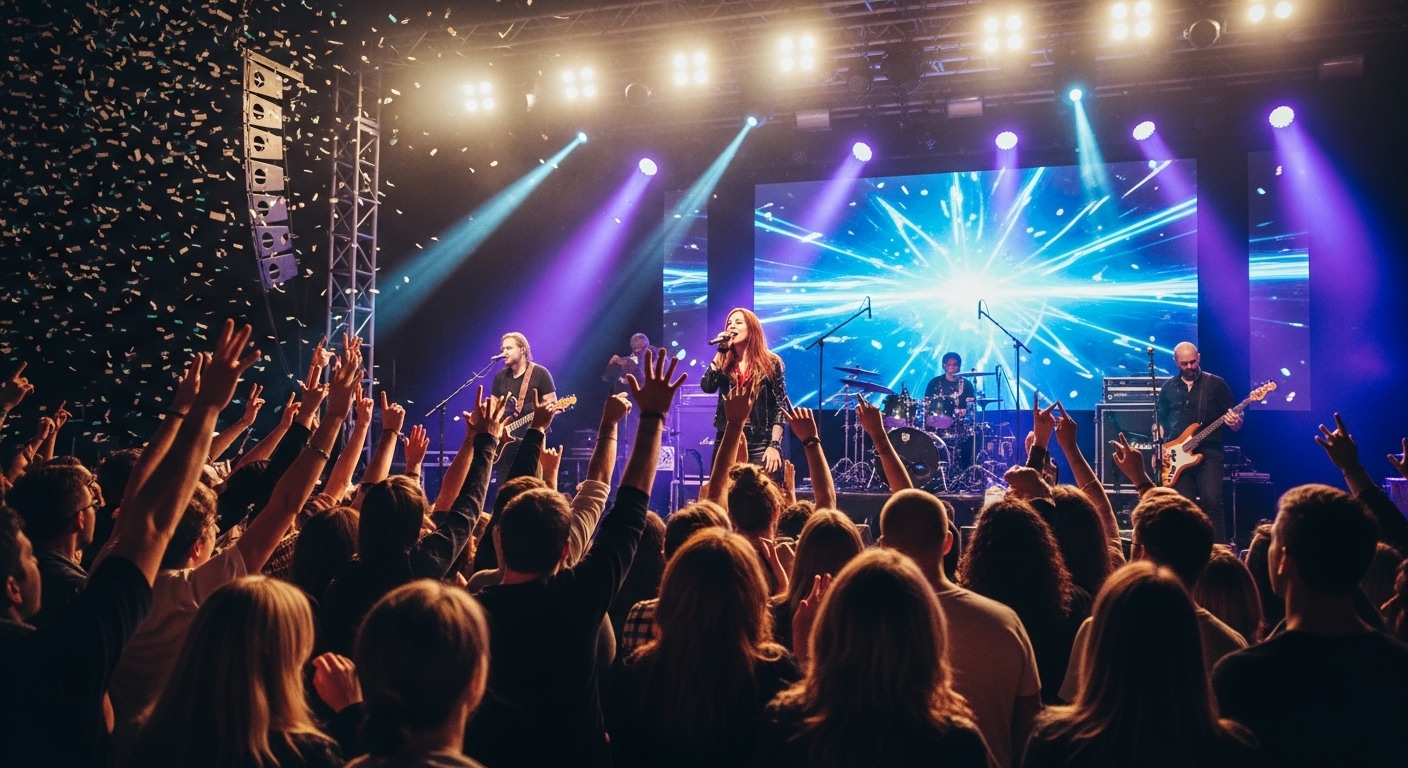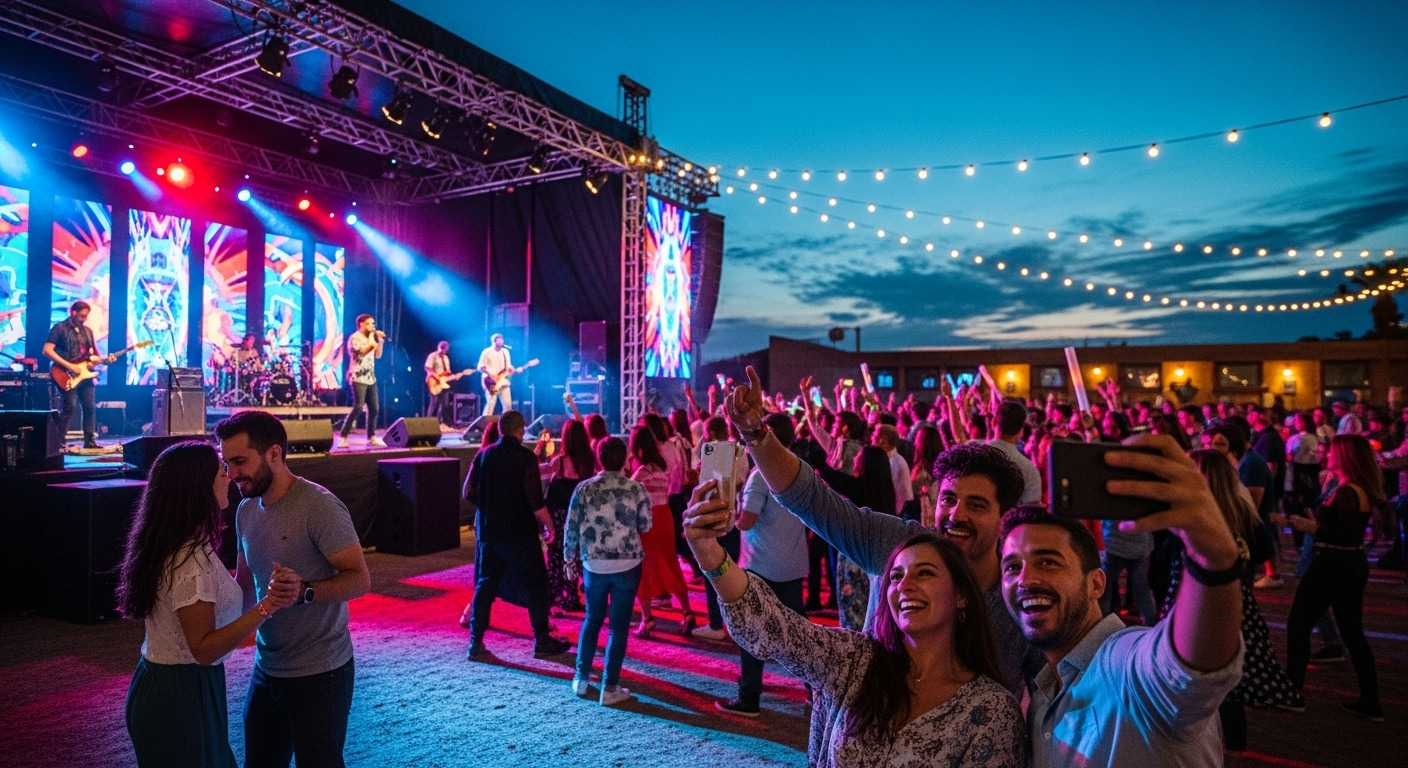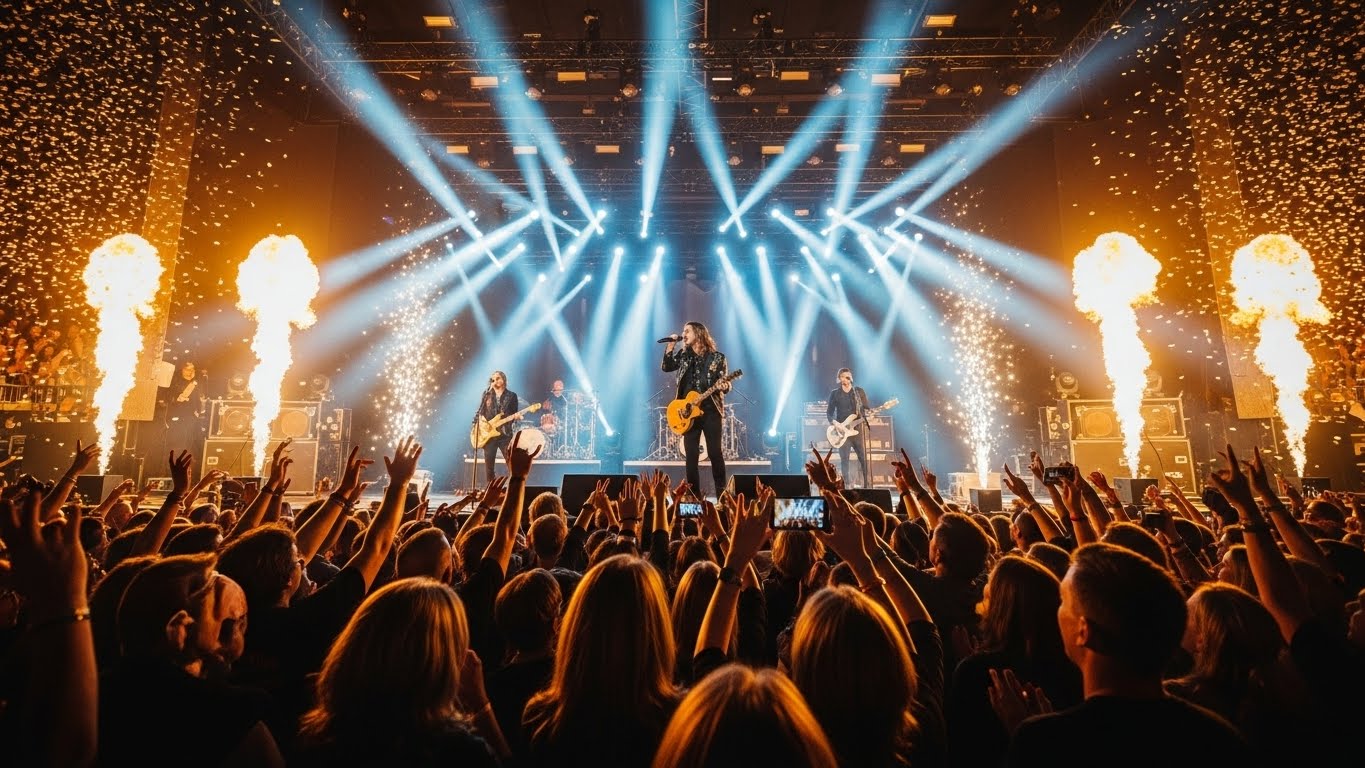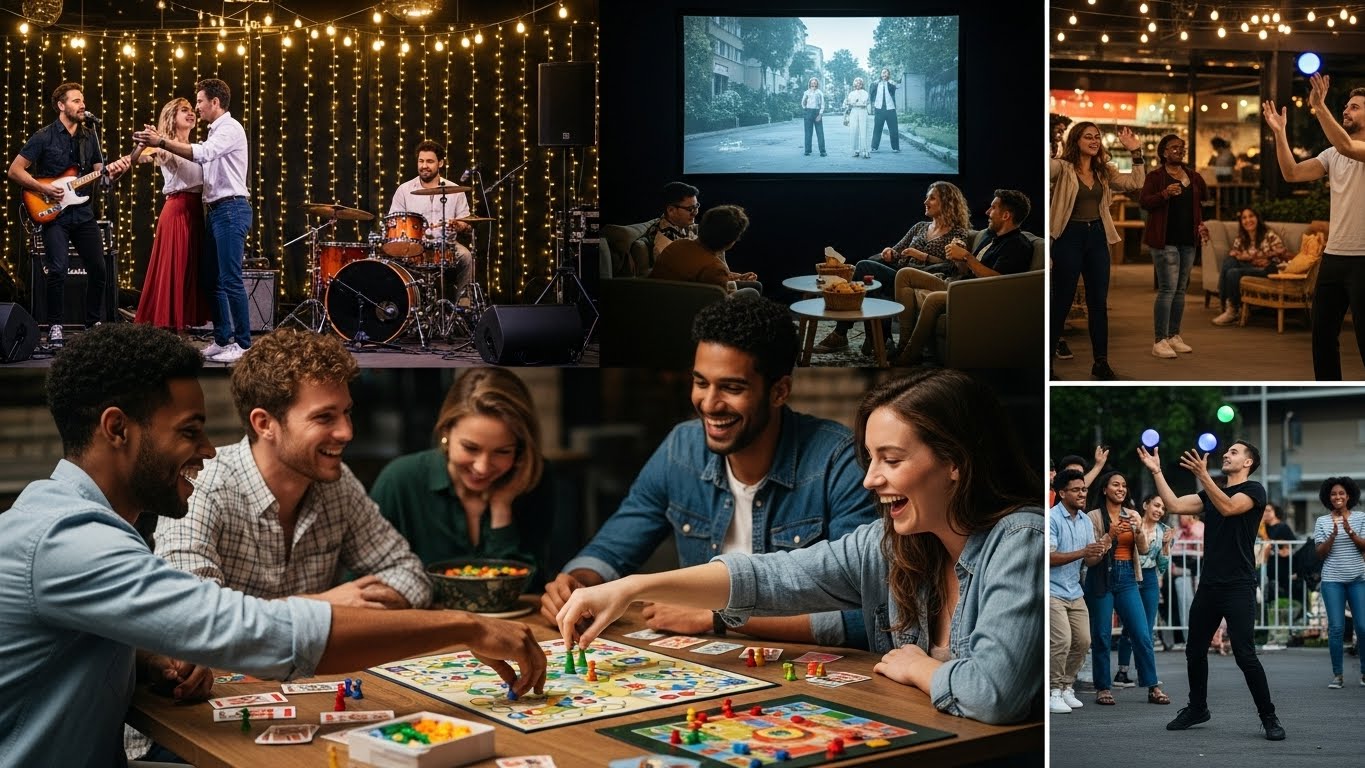Entertainment is one of the most essential aspects of human culture. It is a reflection of creativity, emotion, and the desire to connect with others. From the earliest days of humanity, when stories were shared around fires, to the modern era of streaming platforms and immersive experiences, entertainment has always played a vital role in shaping societies and individual lives. It is more than a form of leisure; it is a way of expressing identity, culture, and imagination.
The power of entertainment lies in its universality. It crosses cultural boundaries, appeals to diverse audiences, and creates shared experiences. People are drawn to entertainment not only for amusement but also for inspiration, empathy, and understanding. It allows audiences to escape reality, explore new ideas, and engage with emotions in a controlled environment.
This blog will explore the vast and dynamic world of entertainment. It will trace its historical roots, examine the evolution of media, explore the impact of technology, and highlight the ways entertainment continues to shape human experience.
The Origins of Entertainment
The roots of entertainment can be traced back to ancient civilizations. Early humans relied on oral storytelling, music, and dance as a means of preserving history, teaching lessons, and celebrating life events. Stories served as a bridge between generations, passing down knowledge and culture while entertaining audiences.
In ancient Egypt, Greece, and Rome, performance and spectacle became central to community life. Festivals, theatrical plays, and musical performances were not merely recreational; they were imbued with religious and social significance. Greek tragedies and comedies explored moral dilemmas and human emotion, while Roman spectacles, such as gladiatorial games, provided shared experiences that captivated entire populations.
Music, too, has been a constant companion to human civilization. Drums, flutes, lyres, and other early instruments were used to express joy, sorrow, and spirituality. Over time, music evolved from ritualistic purposes to entertainment that engaged audiences on a purely emotional level. Even in early societies, entertainment was recognized as a powerful tool for connection and expression.
The Rise of Theatre
Theatre represents one of the earliest formalized forms of entertainment. In ancient Greece, playwrights like Sophocles, Euripides, and Aristophanes created dramas and comedies that examined human behavior, ethics, and society. Theatre was an immersive experience where the audience actively engaged with the performance.
During the Renaissance, theatre flourished once again. In England, playwrights like William Shakespeare elevated the craft, producing works that explored love, power, and morality. These plays transcended their era and remain relevant today, demonstrating the enduring power of storytelling.
The appeal of live performance lies in its immediacy and connection. Unlike recorded media, theatre and live shows are experienced in real time, with performers and audiences sharing energy and emotion. This dynamic interaction has kept theatre, concerts, and live events relevant for centuries.
Cinema and the Birth of Modern Storytelling
The invention of motion pictures in the late 19th century revolutionized entertainment. Early films were short and silent, yet they captivated audiences with moving images and storytelling. By the early 20th century, cinema had become a dominant cultural force, giving rise to Hollywood and global film industries.
The transition from silent films to talkies and then to color transformed the cinematic experience. Audiences could now engage with dialogue, music, and realistic visuals, making stories more immersive and emotionally impactful. Film stars became cultural icons, influencing fashion, language, and social norms.
Cinema also became a mirror of society, reflecting both its triumphs and struggles. Films addressed political issues, social change, and human psychology while providing escapism. Blockbusters, independent films, and documentaries all contribute to a diverse entertainment landscape that reaches millions worldwide.
The Evolution of Music
Music has always been central to human entertainment. Over centuries, it has evolved alongside culture, reflecting societal changes and influencing trends. Classical compositions gave way to jazz, rock, pop, and hip-hop, each era expressing the emotions and concerns of its time.
The 20th century saw the rise of recorded music, radio, and television, making it accessible to mass audiences. Musicians became global celebrities, shaping cultural identities and inspiring social movements. From the rebellious energy of rock and roll to the expressive power of hip-hop, music has been a vehicle for both entertainment and societal commentary.
With the digital revolution, music has become more accessible than ever. Streaming platforms allow artists to reach global audiences, while fans can discover diverse genres from around the world. Music festivals and live concerts continue to create shared experiences that unite people across cultures.
Television and the Era of Shared Experiences
Television transformed entertainment by bringing it directly into homes. Families could gather to watch news, dramas, comedies, and live events. Television became a cultural hub, influencing fashion, language, and social behavior. Iconic shows created shared experiences and defined generational identity.
Television also introduced serialized storytelling, keeping audiences engaged over weeks, months, or even years. Sitcoms, dramas, and game shows created a sense of anticipation and emotional investment. With the rise of cable and satellite television, audiences gained access to a wide range of genres, expanding the diversity of entertainment options.
Today, television has evolved further with streaming services. Viewers can access entire libraries of shows and films on-demand, allowing for personalized entertainment experiences. Despite these technological changes, the core appeal of television remains—shared stories that connect people emotionally and socially.
The Video Game Revolution
Video games represent one of the most transformative developments in modern entertainment. Unlike passive media, video games offer interactive experiences where players shape outcomes and explore virtual worlds. From early arcade games to complex role-playing adventures, gaming has become a dominant form of storytelling and engagement.
Modern games offer immersive narratives, realistic graphics, and social interaction. Online multiplayer games connect players across continents, creating communities and fostering competition. Esports have turned professional gaming into a global spectacle, with tournaments filling stadiums and drawing millions of viewers online.
Gaming has also influenced other entertainment forms, blending storytelling, music, and visual artistry into interactive experiences. It demonstrates how engagement and participation enhance emotional investment in entertainment.
Digital Entertainment and the Internet
The internet has revolutionized how people access and create entertainment. Social media platforms, video-sharing sites, and streaming services allow creators to reach audiences directly. Content that once required a studio or production company can now go viral through a single upload.
Digital entertainment is interactive and participatory. Fans create content, share opinions, and engage with communities surrounding their favorite media. Memes, fan art, and online challenges have become modern forms of expression and entertainment in their own right.
Global access to digital content has also expanded cultural exchange. Audiences can experience entertainment from different countries and languages, broadening understanding and appreciation for diverse perspectives. The digital era has made entertainment a shared, worldwide phenomenon.
The Psychological Power of Entertainment
Entertainment is more than enjoyment; it has a profound psychological impact. Stories, music, and performance allow audiences to explore emotions, confront challenges, and process experiences. Laughter, suspense, or tears experienced through entertainment can provide catharsis and emotional release.
Engaging with entertainment can foster empathy and understanding. Watching characters navigate struggles or triumphs helps people see life from different perspectives. Music and performance can also reduce stress, inspire creativity, and enhance cognitive function.
Entertainment is a safe space to explore imagination and emotion. It encourages reflection, dialogue, and connection, offering both personal satisfaction and social cohesion.
The Business of Entertainment
Behind every film, album, or game lies a complex industry that drives creativity and innovation. Studios, production companies, and distribution networks coordinate to bring content to audiences. Marketing, technology, and talent management all contribute to the success of entertainment products.
The entertainment industry is a global phenomenon, generating significant economic impact. Blockbusters, streaming services, music tours, and gaming franchises contribute to employment, tourism, and cultural influence. Innovation is constant, with creators and companies seeking new ways to engage audiences and capture attention in an increasingly competitive market.
Despite commercialization, the essence of entertainment remains rooted in creativity and connection. Financial success allows for larger-scale projects, but audience engagement depends on authenticity, storytelling, and emotional resonance.
The Future of Entertainment
The future of entertainment is being shaped by technology, creativity, and audience participation. Virtual reality, augmented reality, and artificial intelligence are transforming experiences, creating immersive and interactive forms of storytelling. Fans can enter digital worlds, influence narratives, and engage with content like never before.
Personalized entertainment is becoming the norm. Streaming services use algorithms to suggest content based on individual preferences, while games adapt to player choices. These innovations make experiences more engaging and emotionally impactful.
Despite technological advancements, the core of entertainment remains human. Stories, music, performance, and creativity continue to reflect shared experiences, dreams, and emotions. The medium may evolve, but the desire to be entertained, inspired, and connected will endure.
The Cultural Impact of Entertainment
Entertainment shapes culture by reflecting societal values, influencing trends, and providing shared experiences. It preserves history, challenges norms, and introduces audiences to new perspectives. Films, music, and performances often spark conversations, inspire movements, and foster empathy.
Global entertainment allows cultural exchange. People experience stories, music, and traditions from different countries, promoting understanding and appreciation. It also bridges generational gaps, with classics remaining relevant while new trends emerge. Entertainment is both a product and a driver of culture, shaping identity and community across time and space.
Conclusion
Entertainment is an essential part of human life. It is the intersection of creativity, emotion, and connection. From ancient storytelling to digital media, it has evolved alongside humanity, reflecting our values, fears, dreams, and aspirations.
It offers joy, inspiration, and shared experience. It allows individuals to explore imagination, understand others, and engage with culture. Technology continues to expand the possibilities, creating immersive, interactive, and global entertainment experiences.
Despite the changing mediums, the essence of entertainment remains the same: to move, inspire, and connect people. It is a universal language that transcends borders and generations, proving that the power of stories, music, and performance will always endure.
Entertainment is more than a pastime; it is a fundamental part of human identity, creativity, and expression. Its history is long, its present is vibrant, and its future promises to be even more extraordinary.



